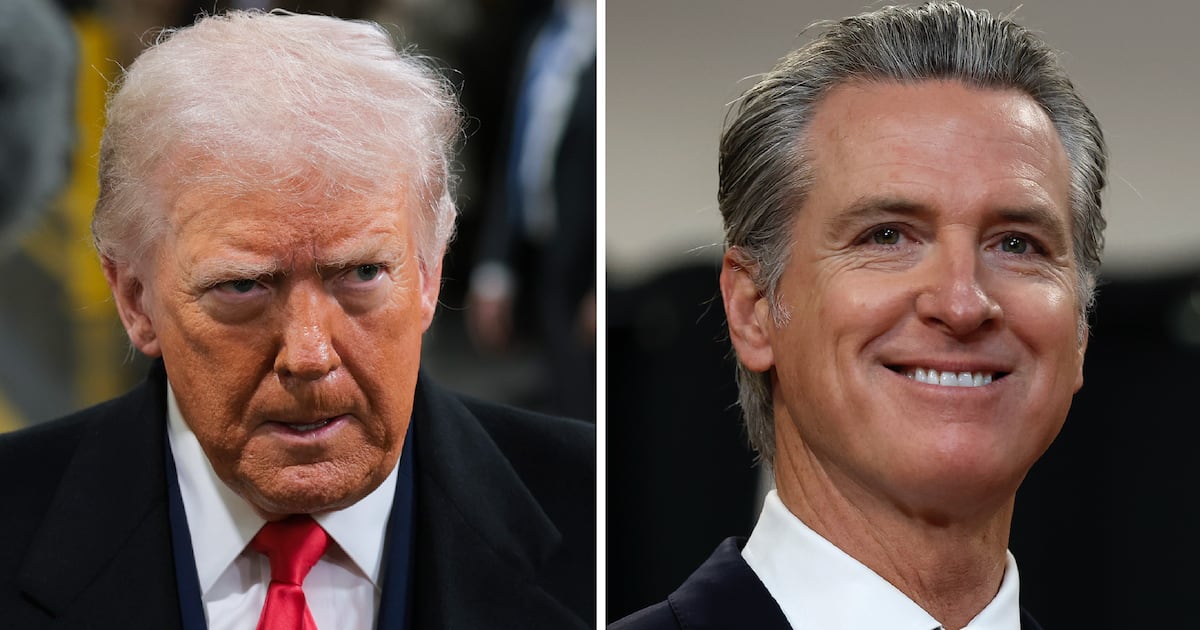
The Senate is near a deal on financial reform, according to Republican Senator Richard Shelby, who said on Wednesday that there are "a substantial number of Republicans that go along with it." Another Senate Republican, Bob Corker, said Tuesday night that he expects all 100 senators to vote to begin debating the bill.
Harvard professor and TARP overseer Elizabeth Warren—who is emerging as a potential Obama Supreme Court nominee—has spent years fighting for tougher consumer protections against banks. The Daily Beast’s Benjamin Sarlin talks to Warren about the Senate’s finance bill and answers her critics.
Q: With financial reform possibly coming up for a vote within weeks, many are concerned that big banks will be able to sneak in an array of loopholes as the issues dealt with by the bill are often highly complex and difficult to easily explain to the average American. What can non-experts do to keep track of this debate and what areas do you think are the most dangerous in terms of under-the-radar lobbying?
Warren: Complexity provides enormous benefits for big banks. The banks figured out when they grew the one-page credit card contracts of 1980 into the 30 pages of incomprehensible fine print today that they could load up on tricks and traps that would obscure the true cost of credit—and drive profits through the roof. They realized the value of complexity when they sliced and diced and bet and cross-bet on mortgages, creating new risks in the system that nobody but Wall Street’s math wizards truly understood—and profits went even higher. And now they are making reforms seem as complex as possible so that the lobbyists can work behind closed doors and the banks’ allies in Congress will have cover if they vote to block meaningful reforms.
Complexity and backroom deals work for Wall Street, but they usually don’t work for the rest of us. The best thing Americans can do right now is reject the idea that reform is so complicated that only Wall Street insiders truly understand it. A lot of the principles at stake here are simple. For example, consumers should be able to read and understand their credit card and mortgage contracts. According to a recent AARP survey, 96 percent of Americans support that reform. The conservative think tank American Enterprise Institute even has a sample one-page mortgage contract. That just isn’t complicated.
Look for an independent Consumer Financial Protection Agency—one with real teeth. Look for regulations to cut back on high-stakes gambling—taming the derivatives market. Look for ways to rein in the big banks with break-ups, restrictions on their activities, or strong leverage ratio controls. Look for a new bankruptcy law for too-big-to-fail institutions. And most of all, keep emailing and writing your senators to tell them you are looking—that’s the most powerful threat of all.
Q: Given the focused lobbying efforts of banks on this bill, how hopeful are you that serious reform can pass in the next few weeks? What's keeping special interests from running roughshod over this bill?
Warren: No one doubts the power of the big banks and their army of lobbyists. The financial industry has spent more than $1 million per member of Congress trying to kill meaningful reform. In doing so, they have made this a banks-vs.-families fight. Despite all this lobbying, senators are worried that helping out their Wall Street friends could be very costly. If everyone who reads this Q&A will place a phone call and send an email to their two senators demanding meaningful reform—an independent consumer agency, regulating big banks, and bankruptcy for failed too-big-to-fail Wall Street players—the odds of the lobbyists winning will go down. This fight will go right down to the wire.
Q: Regarding a consumer protection agency—some observers have suggested that adding more regulators to the mix may be insufficient to deal with future problems because so many regulators were asleep at the wheel in the run up to the latest crisis. How would a consumer agency change this equation and avoid these pitfalls?
Warren: Consumer protection authority is currently scattered among seven federal agencies, and all of those agencies have failed to create effective rules for two structural reasons. The first is that financial institutions can currently choose their own regulators. By changing from a bank charter to a thrift charter, for example, a financial institution can change from one regulator to another. In fact, an institution may decide to evade a federal regulator altogether by housing its operations in the states and forgoing a federal charter. Institutions can shop around for the regulator that provides the most lax oversight, and bank holding companies can shift their business from their regulated subsidiaries to those with no regulation—and no single regulator can stop them. The problem is exacerbated by the funding structure: regulators’ budgets come in large part from the institutions they regulate, and so they are reluctant to lose chartered institutions.
The second structural flaw is a cultural one: consumer protection staff at existing agencies is small, last to be funded, and always playing second fiddle to the primary mission of the agencies. At the Federal Reserve, senior officers and staff focus on monetary policy. At the Office of the Comptroller of the Currency and the Office of Thrift Supervision, agency heads worry about bank profitability and capital adequacy requirements. As the current crisis demonstrates, even when they have the legal tools to protect families, existing agencies have shown little interest in meaningful consumer protection.
The CFPA is designed to fix these structural problems by consolidating the scattered authorities, reducing bureaucracy, and making sure there is an agency in Washington on the side of families. The CFPA would have the expertise to fix the broken credit market and would be held accountable for doing so.
Q. There's a lot of concern that the bill does not do enough to address the problem of "Too Big to Fail" that led to TARP being enacted in the first place. Would this bill prevent the need for the bailouts we saw in 2008 if another financial crisis came along? What is the most crucial component in making sure it does?
Warren: Today, if a Wall Street bank goes out and makes the wildest bet on earth, it will keep the profits if the bet pays off and you and I and millions of other American taxpayers could be on the hook if the bet falls short. But if a family gets into trouble, if a family loses a job, if they’ve been tricked into some crazy payment scheme or if someone in the household has gotten sick, the answer is that you are on your own. The same is true for small businesses—you are on your own. Those are the rules we’re operating under, and those rules are wrong.
There are two basic approaches to the too-big-to-fail problem: The first is to regulate big financial institutions so they are less likely to fail (break them up, decrease leverage, or ban certain risky activities). The second is to have a backstop when regulation fails, a hammer in the form of a bankruptcy law that ensures that no TBTF survives if government money is needed to cover any of its activities. The most crucial component to this hammer is that government help means managers will be fired, equity will be wiped out, and bond holders will get a haircut. That will put some real discipline back into the TBTF market. We cannot continue to give what is functionally free insurance to large banks—it kills the whole market system.
Benjamin Sarlin is Washington correspondent for The Daily Beast. He previously covered New York City politics for The New York Sun and has worked for talkingpointsmemo.com.






